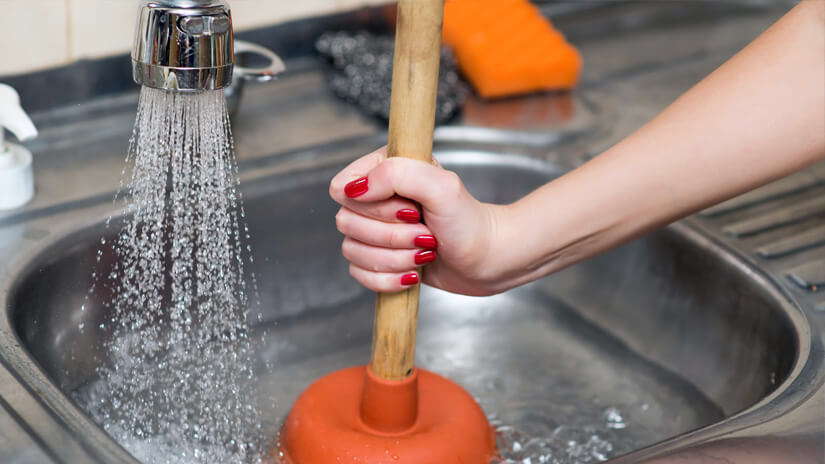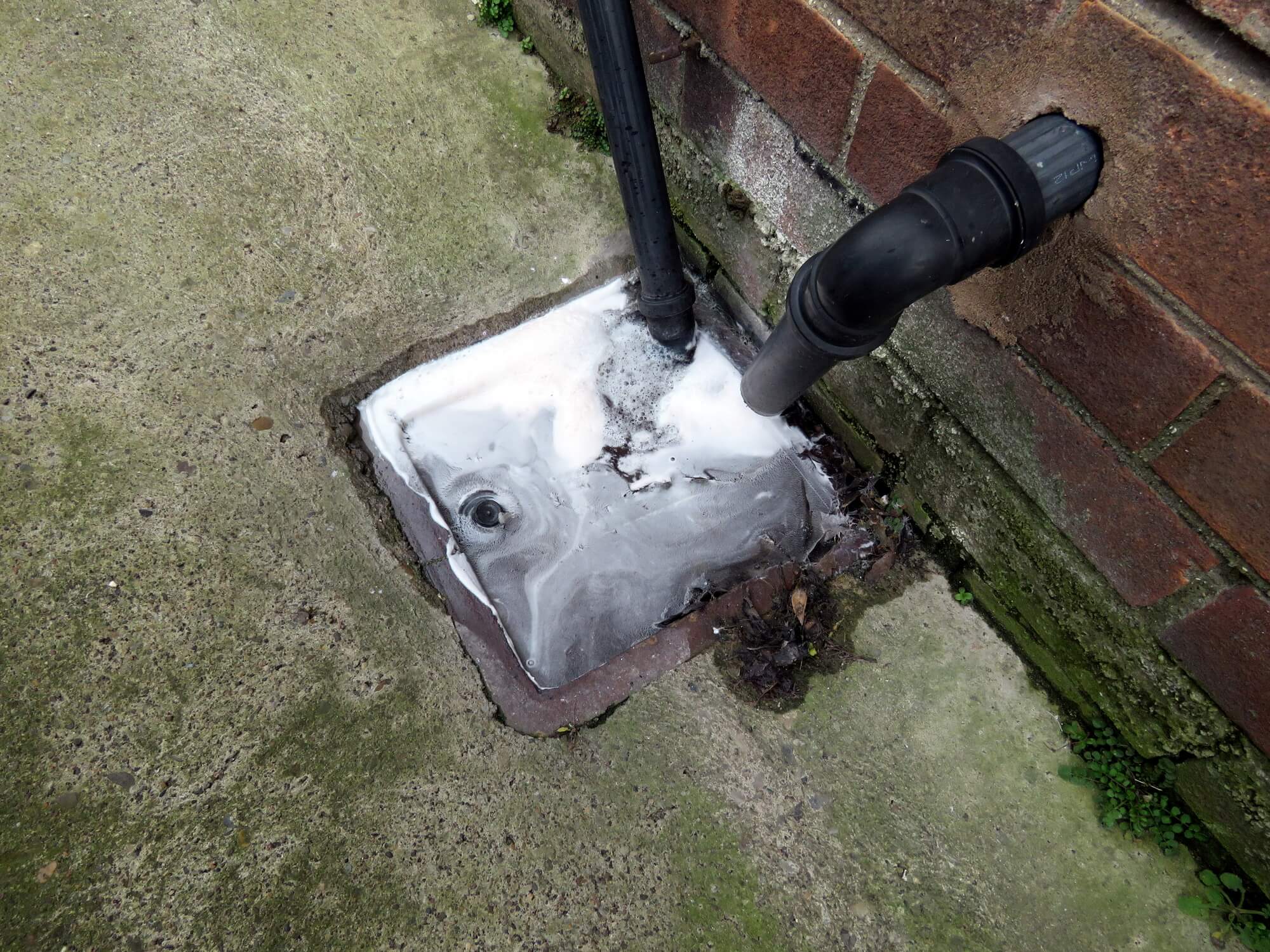How to Handle a Blocked Drain On Your Own Before Seeking Plumbing Professionals
How to Handle a Blocked Drain On Your Own Before Seeking Plumbing Professionals
Blog Article
What're your thoughts and feelings on How to handle a clogged drain in your home?

Introduction
Managing an obstructed drainpipe can be a discouraging experience, interfering with everyday tasks and possibly creating damage to your building. Nevertheless, before connecting to plumbing professionals, there are steps you can require to address the concern yourself. In this guide, we'll explore do it yourself services and safety nets to take on an obstructed drain properly.
Recognizing the Concern
The primary step in resolving a blocked drainpipe is acknowledging the signs. Slow drainage, gurgling sounds, foul odors originating from drains pipes, or water support up are common signs of a blocked drain. Determining these indicators early can help stop better difficulties.
Picking the Right Pipes Service
When choosing a pipes solution, take into consideration elements such as experience, licensing, and customer evaluations. Select a trustworthy plumbing technician with a track record of high quality workmanship and clear prices methods.
Expense Considerations
The price of expert drain cleaning company can differ relying on the seriousness of the obstruction and the plumbing professional's rates. Demand quotes from several carriers and inquire about any type of service charges to make sure transparency and avoid shocks.
Safety and security Measures
When trying do it yourself drain cleaning, prioritize safety. Put on safety gloves and glasses to stay clear of contact with unsafe chemicals or germs. Never mix various drain cleaning products, as this can create hazardous fumes.
Instance Studies
Real-life examples illustrate the performance of do it yourself remedies and the relevance of timely expert intervention in settling drainpipe clogs.
Typical Root Causes Of Blocked Drainpipes
Understanding the elements that add to drain clogs is vital for efficient resolution. Usual perpetrators include hair, soap residue, grease, food debris, and international things like sanitary items or paper towels. Tree roots attacking below ground pipes can additionally create substantial blockages.
Do it yourself Solutions
For small obstructions, a number of DIY remedies can be reliable. Putting boiling water down the drainpipe can assist liquify oil and debris. Baking soda and vinegar or a combination of salt and cooking soft drink can work as all-natural cleansers. Utilizing a bettor or plumbing snake to dislodge obstructions is an additional choice.
Devices and Tools
Having the right tools accessible can make DIY drainpipe cleaning up extra efficient. A plunger is a flexible tool for getting rid of blockages in sinks, bathrooms, and showers. A plumbing snake or auger can reach deeper blockages, while drain cleansing chemicals can be used carefully for stubborn blockages.
Preventive Measures
To avoid future blockages, adopting preventive measures is important. Install drain guards or strainers to capture hair and particles before they go into the pipes. Frequently flush drains with hot water to liquify grease buildup, and stay clear of getting rid of grease or solid waste down the tubes.
When to Call an Expert
While do it yourself options can settle minor obstructions, specific indicators show the demand for professional support. Persistent obstructions, foul odors regardless of cleaning initiatives, or several drains supporting at the same time are red flags that warrant skilled intervention.
Conclusion
By following the suggestions detailed in this guide, you can efficiently take on obstructed drains pipes and avoid future pipes problems. Whether selecting DIY remedies or looking for expert assistance, timely action is vital to maintaining a healthy plumbing system and protecting the integrity of your home.
How to Clear a Clogged Drain Yourself (And When to Call In the Professionals)
What Can Clog a Drain
Dirt Skin flakes Hair Grease Soap scum Food Offset pipes Tree roots Small objects Mineral buildup DIY Tricks to Unclog a Drain
You can fix this! Once you have identified the source of the clog (or have a vague idea), you can try one or a combination of these fixes in order to clear your plumbing.
Wire Hanger or Snake
Untangle and clear out hair from a drainpipe with a homemade snake. Use a straightened-out wire hanger with a 90-degree angle hook to locate the clog and drag out any unwanted material.
Remember not to push the clog further down to where the wire hanger cannot reach! If you need to follow up with a plunger, give it a try. Your efforts might be more successful after it’s been wire-snaked.
If you want to get fancy and don’t have a wire hanger to spare, head to the store and pick up a hand-operated drain snake. You can get one for $10-$30. It may save you the hassle, and provide additional length to reach deep into the clogged pipe.
Plunger
A cup plunger has a suction cup attached to a wooden handle. The rubber creates a seal around the drain, and increases the pressure force of the plunger.
Plunge for 30-second increments to loosen the clog. This may need to be repeated over the course of 15-20 minutes. Once plunged, run the water to flush the remaining material out of the drain.
Remember– never use a plunger if you have used a chemical drain cleaner. These chemicals can splash up from the force of the plunger and cause serious injury or burns.
Boiling Water
Hot water can sometimes break up materials into a flushable amount. Dirt, grease, and soap buildup requires heat in order to unstick from surfaces.
Take your kitchen kettle and heat your water to a boil. Once it reaches a rolling boil, pour it directly down the drain into the blockage. Carefully follow with plunging, if necessary.
Don’t worry if this takes more than one try! It can often take multiple kettles and repeated plunging in order to clear a particularly stubborn clog.
Chemical Drain Cleaner
As a last resort, pick up a bottle of chemical drain cleaner. Drain-cleaning chemicals are potent, and not very good for the environment.
You may need to wear protective eyewear in gloves before handling your bottle of chemical drain cleaner. Follow the instructions printed on the bottle, and flush with water as soon as the instructions allow. Do not follow with plunging.
Baking Soda and Vinegar
As a safer alternative to chemical drain cleaner, baking soda and vinegar can create a chemical reaction that clears tough clogs.
Combine one cup of cleaning vinegar with one cup of boiling water, and set aside. Once you have done this, pour half a cup of baking soda down the drain. Give the baking thirty seconds to settle and cover a large portion of the problem drain.
Following the baking soda, pour down your vinegar and hot water solution. Once the vinegar and baking soda combine, the mixture will bubble and fix. Let this reaction fizzle in the drain for about an hour.
After an hour, follow with a kettle’s worth of hot water. The heat and liquid should flush out any remaining material.
When to Call a Plumber
If your DIY attempts haven’t cleared your clog drain, it’s time to call in a professional. It’s not worth losing access to your kitchen sink or high-traffic bathroom. A clog in a vital area can keep you from the things you’d rather be doing, and derail your routine.
Anytime a clog is causing water to spread is a time to call in a plumbing service. What starts out as a little bit of water can quickly grow into serious, expensive water damage.
Additionally, a serious clog can result in burst pipes or serious leaks. Make sure you know when to take it seriously!
https://myguysnow.com/how-to-clear-a-clogged-drain-yourself-and-when-to-call-in-the-professionals/

Hopefully you enjoyed reading our article about How to handle a clogged drain in your home. Thanks for taking time to read our article. Do you know about anybody else who is sincerely interested in the subject? Take a moment to share it. Thank you for being here. Don't hesitate to stop by our website back soon.
Call Report this page